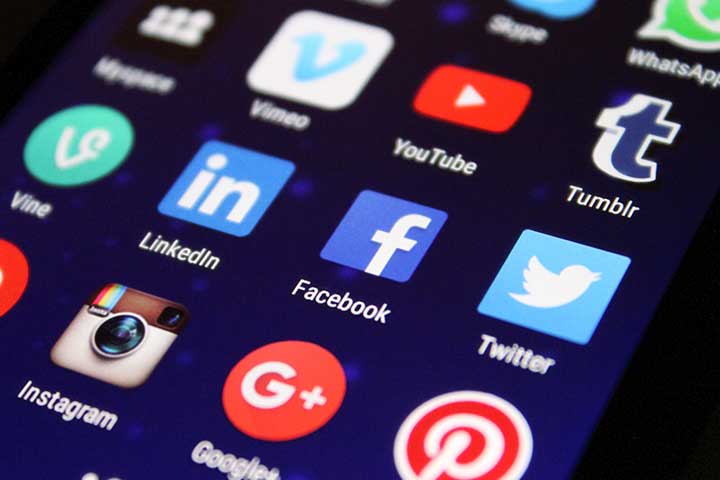They say that if something is not on the internet it is as if it does not exist and something similar happens when a person does not have a profile on one of the many social networks. We are all inside but do we know what that implies?
Twitter, Facebook, Instagram, Linkedin, TikTok … and so we could continue for a while because the amount of social networks that we have today at our disposal is very wide and it is strange that we do not have a profile registered in any of them, but in several. But … Are we aware of what it means to be in a social network? Do we know who handles our data once we enter?
It is a reality that social networks have many advantages and provide us with a lot, but we must also be careful, know their risks, and know how to manage them in the best way. In recent years there have been several movies and television series about social networks and the impact they can have on their users. See ‘The social network’, ‘Black Mirror’, ‘You’, etc. They are fiction series but, as we have seen, they are not far from reality.
‘I accept the terms and conditions
Have you ever stopped to read the terms and conditions when registering a profile on a social network? It is not something that people are used to doing, the usual thing is to lie when we press the ‘I have read and accepted the terms and conditions ‘ button; a lie motivated in part by the length and complicity of the texts, however, it is important to know of them.
What do we accept by pressing that button? These conditions vary according to the company in which we register, but in the end, practically all share important points in common such as access to user data, movement tracking, and even license to use the information that we upload to our profiles. This affects many things, some more noticeable than others, such as receiving ads that are personally focused on the user.
It is common for RRSS users to share more personal information than necessary, thus exposing too much information that it is difficult to control
Also Read: Chat Bubbles On Your Android Mobile: Telegram And Whatsapp
Risks that affect privacy in social networks
In another order of things and, terms and conditions apart, it is also important to know the risks that affect our privacy. In recent years we have seen several of the most popular social networks internationally suffer security leaks. Although there are things that we cannot control, there are others that are in our power:
- Sharing sensitive or excessive personal information: We often forget how much personal information we share, as well as its value. Some are necessary, but not all, so it is important to look at this aspect in detail and not expose more personal information than necessary.
- Authorize access to external applications: it is common that, when installing a new app, it requests permissions to access applications such as the photo gallery, the microphone, etc. Sometimes it happens that when accessing, we are authorizing the use or handling of more data than we are aware of, so it is advisable to be careful and monitor which apps we give access to.
- Computer attacks: social networks are also a gateway for cybercrime. Attacks such as phishing are the order of the day and although in many cases a little common sense is enough to avoid making mistakes, it is also advisable to have a security tool.
- Bots: We often find accounts that pose as real users, despite being programmed machines, and with the minimal access we give them, they can already obtain personal information.
How can I protect my profile?
At this point, perhaps mired in pessimism about the risks of social networks, we are going to see what we can do to protect our information as much as possible.
- Reliable passwords: it is undoubtedly the first step in terms of security since it is the first barrier. Get used to using different types of characters, numbers, etc., and don’t use the same password on different sites.
- Official applications: sometimes we can find unreliable applications or download sites that are not official ones. It is always advisable to go to the play store or Apple Store and download only the certified versions.
- Double authentication: in addition to the password, the tools have more security methods and one of them is two-step authentication. They usually work through codes that are sent by SMS.
- Antivirus protection: as an extra method, it is always advisable to have a good antivirus and keep it updated. This not only acts as protection but can warn us of possible threats that may reach us through social networks.
- Private profile: this action may perhaps go against the philosophy of some social networks, but in terms of security it never hurts. In all the RRSS the user can select if his account is open to the public or if, on the contrary, it is only visible to those users who are given access.

